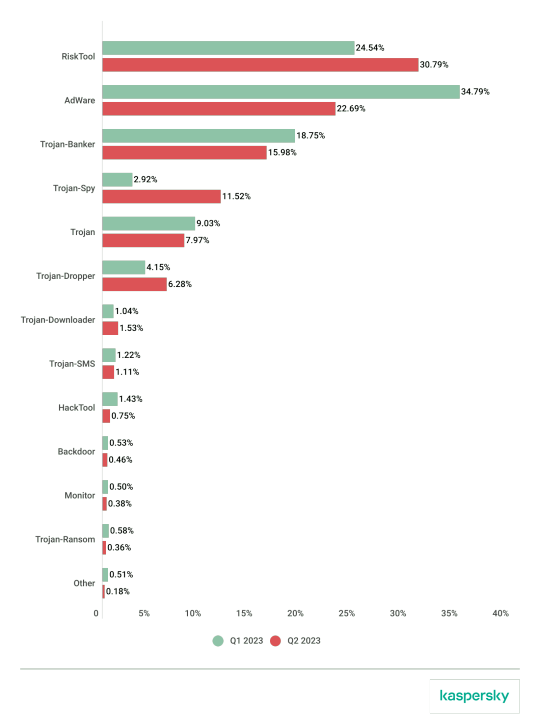Text
The Hidden Dangers of Carrying an Android Device Everywhere

In today's digital age, it's nearly impossible to go a day without using a smartphone. And for many people, that device is an android - the popular alternative to the apple iPhone. But while we may love the convenience and endless features of our androids, there is a dark side to carrying this device with us everywhere we go. In fact, it's no exaggeration to say that androids are essentially massive tracking devices, constantly collecting and sharing our personal information. And the more we rely on these devices, the more vulnerable we become to the hidden dangers they pose.
Understanding the Tracking Features of an Android Device
In today's digital world, our android devices have become an extension of ourselves. We rely on them for communication, entertainment, and accessing information at our fingertips. But what many people may not realize is that our androids are constantly collecting and sharing our personal information, turning them into massive tracking devices.
Android devices have a multitude of tracking features that allow them to monitor our every move. From GPS location tracking to monitoring app usage and even tracking our search history, our androids have the capability to gather an extensive amount of data about us. This information is then often shared with various third-party apps, advertisers, and even the device manufacturers themselves.
By understanding the tracking features of our android devices, we can become more aware of the extent to which our personal information is being collected and shared. This knowledge empowers us to make informed decisions about our privacy and take necessary steps to protect our information.
It's important to note that while some tracking features can be disabled through privacy settings, not all of them can be completely turned off. Android devices are designed to gather data to enhance user experiences and provide personalized services, but it's crucial to weigh the benefits against the risks involved. In the next sections, we will explore the potential risks of location data sharing and the ways our personal information can be exploited. Stay tuned to learn how you can safeguard your information and make informed decisions about the tracking features of your android device.

The Risks Involved with Location Data Sharing
Our android devices are constantly collecting and sharing our location data, and this can pose several risks to our privacy and security. One major risk is that this data can be accessed by third-party apps and advertisers who may use it for targeted advertising or even sell it to other companies. This means that our every move is being tracked and analyzed, allowing companies to create detailed profiles of our habits, preferences, and behaviors.
But it doesn't stop there. Location data can also be used to track our movements in real-time, which can be a serious safety concern. If this information falls into the wrong hands, it can be used to stalk or harm individuals. Additionally, if a hacker gains access to our location data, they could potentially know when we are away from home, making our homes vulnerable to burglary.
Another risk of location data sharing is the potential for government surveillance. It's no secret that governments have the ability to track individuals using their smartphones. While this may be for national security purposes, it also raises concerns about the erosion of privacy rights and the potential for abuse of power.
To mitigate these risks, it's important to be aware of the permissions we grant to apps and regularly review our privacy settings. We can also consider using a virtual private network (VPN) to encrypt our internet connection and protect our location data. Being mindful of the risks involved with location data sharing is the first step towards safeguarding our privacy and security in the digital age.
Ways Your Personal Information Can Be Exploited
In today's digital age, personal information has become a valuable currency. Unfortunately, our android devices are prime targets for exploitation. The data collected by our smartphones can be used in a variety of ways to manipulate and harm us.
One way our personal information can be exploited is through identity theft. With access to our android device, hackers can obtain sensitive data such as our social security number, credit card information, and passwords. This information can then be used to impersonate us and commit fraud, leading to financial loss and damaged credit.
Additionally, our personal information can be sold to advertisers and marketers who use it to bombard us with targeted advertisements. Have you ever searched for a product online and suddenly started seeing ads for it everywhere? That's not a coincidence. Advertisers use our data to create personalized ads that are difficult to resist, leading us to make purchases we may not have otherwise made.
Another way our personal information can be exploited is through blackmail and extortion. If a hacker gains access to compromising photos or messages stored on our android device, they may threaten to expose them unless we comply with their demands. This can be a devastating experience, leading to emotional distress and reputational damage.
It's also important to be aware that our personal information can be used to manipulate our opinions and behaviors. Advertisers and political campaigns can analyze our data to tailor their messages and influence our decisions. This manipulation of information can erode our autonomy and shape our beliefs without our knowledge or consent.
To protect ourselves from the exploitation of our personal information, it's crucial to take steps to enhance our digital security. This includes using strong, unique passwords, regularly updating our software, and being cautious about the permissions we grant to apps. We should also educate ourselves about common phishing and scam techniques to avoid falling victim to these tactics.

Privacy Settings and How to Safeguard Your Information
As we've learned, our android devices are constantly collecting and sharing our personal information. But there are steps we can take to safeguard our information and protect our privacy. One of the most important steps is to review and adjust our privacy settings.
Start by exploring the privacy settings on your android device. These settings allow you to control which apps have access to certain information, such as your location, contacts, and camera. Take the time to review each app's permissions and disable any that you feel are unnecessary or invasive. This will help minimize the amount of data being collected and shared without your knowledge.
In addition to adjusting privacy settings, it's important to be mindful of the apps you download and the permissions they request. Be cautious about granting access to sensitive information and only download apps from trusted sources. Take the time to read reviews and research the app's privacy practices before installing it on your device.
Another way to safeguard your information is to regularly update your android device's software. Software updates often include security patches and bug fixes that can help protect against vulnerabilities that hackers may exploit. Set your device to automatically install updates or regularly check for updates manually.
Lastly, consider using additional security measures, such as enabling two-factor authentication for your accounts and using a trusted antivirus app. Two-factor authentication adds an extra layer of security by requiring a second form of verification, such as a fingerprint or a unique code, when logging into your accounts. An antivirus app can help detect and remove malware from your device, further protecting your information.
By taking these steps, you can better safeguard your information and protect your privacy while using your android device. It's important to stay vigilant and proactive in managing your privacy settings to ensure your personal information remains secure in today's digital age.
Pros and Cons of Turning Off Location Tracking
When it comes to location tracking on your Android device, there are both pros and cons to consider before deciding whether or not to turn it off. Let's dive into the benefits and drawbacks to help you make an informed decision.
One of the major advantages of turning off location tracking is increased privacy. By disabling this feature, you have more control over your personal information and who has access to it. This can help protect against targeted advertising, data breaches, and potential stalking or harm.
Additionally, turning off location tracking can help conserve battery life. GPS tracking can be a power-hungry feature, constantly draining your battery. By disabling it, you can extend the life of your device and have more time between charges.
On the flip side, there are some drawbacks to consider. Disabling location tracking can limit the functionality of certain apps and services. For example, navigation apps and weather updates may not be as accurate without access to your location data. Additionally, some apps may require location information for important features to work properly.
Another drawback is that by turning off location tracking, you may miss out on personalized recommendations and services. For example, some apps use your location to provide tailored recommendations for nearby restaurants or events. By disabling this feature, you may receive less relevant information.
Ultimately, the decision to turn off location tracking depends on your priorities and concerns. If privacy and battery life are top priorities for you, then disabling this feature may be the right choice. However, if you rely heavily on location-based apps and personalized services, you may want to carefully consider the potential drawbacks before making a decision.
Remember, you can always adjust your privacy settings and permissions to strike a balance between privacy and functionality. Stay informed, be aware of the risks and benefits, and make the choice that best suits your needs and preferences.
#android#hidden dangers and unintended consequences#android settings#carrying concealed weapon#protect your device#android developer options#android settings you should change#developer options android#turn off these android settings#nearby device scanning#laurenzside of gaming#android battery#android settings to turn off#dangerous bodies of water#android settings 2021#best android settings#android dies#android settings you should turn off#henry danger
0 notes
Text
Apple Faces Backlash Over ‘Shot on iPhone 15’ Marketing Strategy

As we all know how amazing the iPhone 15 Pro Max camera is, the company has made a huge issue out of the fact that the whole 'Scary Fast' event this week, which unveiled the new M3 Macs, was captured on camera. However, as evidenced by a recent Apple behind-the-scenes film, the audacious (and straightforward) "shot on iPhone" boast may be a tad simplistic.
Essentially, the movie was captured with an iPhone 15 Pro Max. with the assistance of additional pricey equipment. Do you want the footage you have to resemble Apple's? I hope your budget includes space for some SpaceCam equipment, drones, gimbals, and lights of the studio calibre.
youtube
It should come as no surprise to exactly zero people that Apple chose to pair the iPhone with some professional-grade gear. The most valuable firm in the world can afford a studio light or two and is keen to make its advertisements appear as professional as possible. Additionally, Apple makes no secret of how much technology is used in a recent blog post. However, by opting to open with the straightforward and slightly trite "Shot on iPhone" line—which has been utilised in a number of photography-focused marketing campaigns—it makes it clear that the phone is the main attraction.
#iphone 15#iphone 15 pro#iphone 15 pro max#iphone 15 review#iphone 15 camera#iphone 15 plus#apple iphone 15#iphone 15 pro max review#apple#iphone#iphone 15 hands on#iphone 15 unboxing#iphone 15 features#iphone 15 pro review#iphone 15 vs#iphone 15 ultra#iphone 15 colors#iphone 15 release date#iphone 15 design#iphone 15 pro max 2023#iphone 15 pro max camera#iphone 15 display#iphone 15 pro max unboxing#iphone 15 price#iphone 15 plus review#Youtube
2 notes
·
View notes